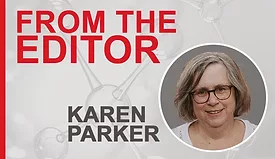Columns
From the Editor
A facility at the Pacific Northwest National Laboratory will use artificial intelligence to automate its entire experimentation process.
Read More
From the Editor
Science and Engineering R&D and Output: How the U.S. Performs
April 23, 2024
Embrace Change and Drive Excellence at Tape Week 2024
Tape Week 2024 will take place April 29 to May 2, 2024, in Orlando, Florida.
March 28, 2024
From the Editor
Cooperation Leads to New Tool for European Tape Industry
A cooperation between Afera and the German Adhesives Association will result in a new tool for liquid adhesives and tape manufacturers.
February 28, 2024
From the Editor
Chocolate News and Reversible Glue: Science Has the Answer
Researchers have developed a reversible glue that could change the way we recycle.
December 19, 2023
Win-Win Focus on the Customer and Costs
Clients that focus on providing a superior customer experience along with achieving optimal bottom-line results will perform better than competitors.
December 19, 2023
Keep the info flowing with our newsletters!
Get the latest industry updates tailored your way.
JOIN TODAY!Copyright ©2026. All Rights Reserved BNP Media.
Design, CMS, Hosting & Web Development :: ePublishing







